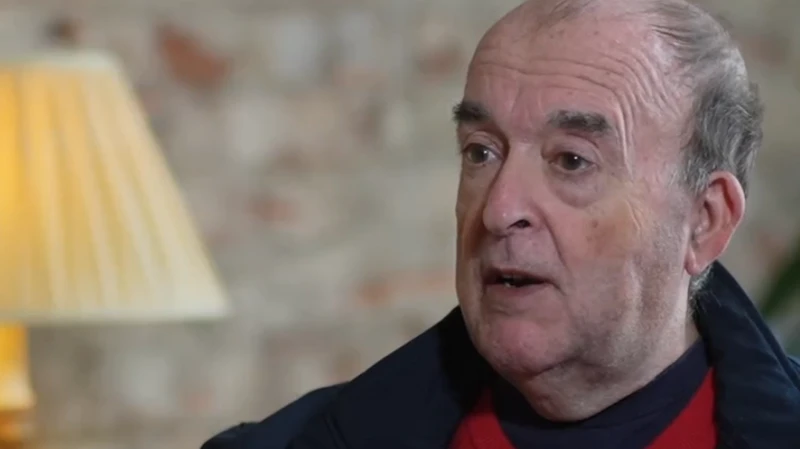A widower who was tricked into sending £85,000 to a woman who never existed said banks should do more to protect vulnerable people from scammers.
Rodrick Lodge told the BBC he was left homeless after falling victim to a con that saw him transfer his life savings to someone called “Anita”.
The 69-year-old, who was living in Leiston, Suffolk, had started an online relationship with her, falling in love for the first time since the death of his wife Pauline in 2019.
He claimed the prospect of the money being retrieved had “gone out of the window”. One of his banks, Halifax, said it had “a great deal of sympathy” for Mr Lodge but had warned him about the payments he was making.
The former United Nations worker, now living in a flat with communal facilities in Staines-upon-Thames, said he felt Halifax and Charter Savings Bank had failed him.
“They said it was my fault and I know I did do a stupid thing but I am a victim and they did not protect me enough.
“I can’t believe how awful the banks are to people, and I don’t think they put enough barriers in place to stop scammers and prevent fraud.”
Mr Lodge, who previously lived in Surrey, had first been put in contact with “Anita” by a friend whom he had met in person three years earlier while working in Kenya.
After striking up a seemingly romantic online relationship, he agreed to move to Nairobi and marry her.
He began to send money so she could prepare their home but, when he landed in Kenya, she was nowhere to be found.
With his retirement fund drained, Mr Lodge spent six weeks living on the streets and in shelters in Guildford and Woking.
He is now using his monthly pension payments to cover his rent but said most months he was “lucky” if he was left with £20 in his pocket.
“I’ve got nothing, I’ve got nobody, I’ve got zero, so my quality of life is pretty poor and my future looks pretty poor, I’ve got no future,” he said.
“But I can’t think about it because I just get too upset and if I can’t do something to change things then what’s the point?
“I just have to think about being healthy and positive but that’s not easy.”
Data obtained by the BBC last year showed cases of romance fraud had risen by almost 60% over four years.
In 2023 there were 7,660 cases of romance fraud processed in England and Wales by a self-reporting tool, up from 4,842 in 2019.
The UK’s national reporting centre for fraud and cybercrime, Action Fraud, issued advice on how to spot and report a romance scam, external.
It warned against sending money to anyone you have never met in person, allowing bank access, taking a loan out for them or providing copies of personal documents.
Since October 2024, it has been mandatory for banks and other payment service providers to reimburse customers who fall victim to certain types of fraud.
UK Finance, which represents 300 firms, said tackling fraud was “a key priority” for the financial services industry.
“Romance fraud is a particularly harmful crime, which involves manipulative criminals convincing innocent people that they are in a romantic relationship, abusing their trust and tricking them into transferring money,” a spokesperson said.
“The financial services industry invests more than anyone else in protecting people from fraud and is the only industry that reimburses people who are exploited and robbed through these harmful crimes.”
The Financial Conduct Authority urged consumers to think carefully before sending money online and overseas.
“We expect banks to have processes in place to protect customers and support victims of fraud,” a spokesperson added.
A Halifax spokesperson said: “We have a great deal of sympathy for Mr Lodge as a victim of a romance scam as these are cruel scams which take advantage of people’s feelings.
“Our advice is to never send money to someone you haven’t met in real life and to always listen to advice or warnings about scams from your bank.”
Charter Savings Bank has been contacted for comment.
Source BBC

